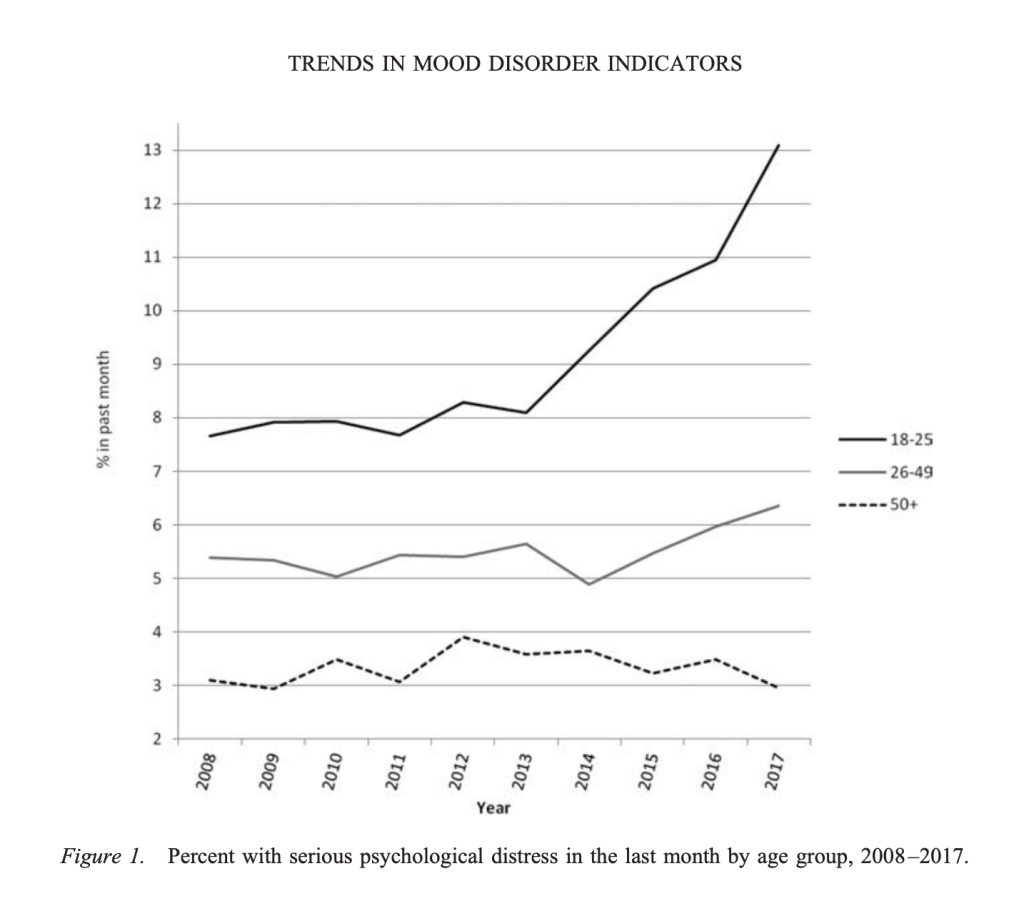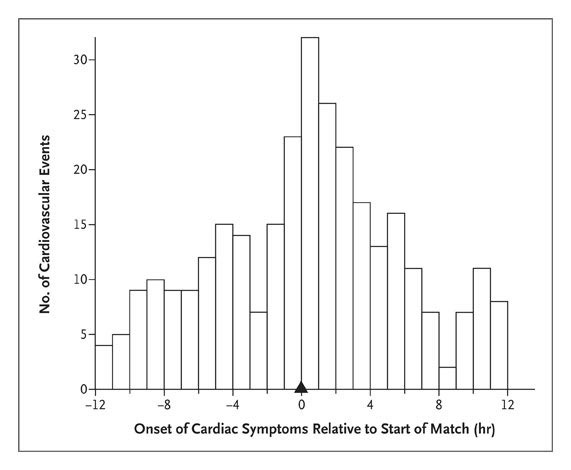A fascinating book from a retired psychiatrist/prison doctor who has seen the sort of things most of us never encounter. Mostly skeptical and confrontational, occasionally dark and a little prudish – with ephemeral sightings of the most honest optimism. Verbose. I usually despise verbosity, but his is the sort that I like to read out loud.
There is something to be said here about the word ‘depression,’ which has almost entirely eliminated the word and even the concept of unhappiness from modern life. This semantic shift is deeply significant, for it implies that dissatisfaction with life is itself pathological, a medical condition, which it is the responsibility of the doctor to alleviate by medical means. Everyone has a right to health; depression is unhealthy; therefore everyone has a right to be happy (the opposite of being depressed).
When young people want to praise themselves, they describe themselves as ‘nonjudgmental.’ For them, the highest form of morality is amorality. There has been an unholy alliance between those on the Left, who believe that man is endowed with rights but no duties, and libertarians on the Right, who believe that consumer choice is the answer to all social questions, an idea eagerly adopted by the Left in precisely those areas where it does not apply.
It is only the sentimentalist who imagines that the profundity of a person’s response to tragedy is proportional to the length, volume, or shrillness of his lamentation.
Danger simplifies existence and therefore—again when chosen, not imposed—comes as a relief from many anxieties. [About a photographer in Vietnam]: He loved the country, but his commitment to it was only war-deep: if peace, alas, were to break out, he would have to find another conflict to photograph.
Untold numbers of my patients, with every opportunity to lead quiet, useful, and tolerably prosperous lives, choose instead the path of complication and, if not of violence and physical danger exactly, at least of drama and excitement, leading to sleepless nights and financial loss… As many have told me, they prefer disaster to boredom.
…social theorists often suppose that human beings have a clear idea what it is they want from life, and behave moreover as if they were rational calculating machines designed to procure it.
I learned early in my life that, if people are offered the opportunity of tranquillity, they often reject it and choose torment instead.
For a long time I pitied myself: had any child ever been as miserable as I? I felt the deepest, most sincere compassion for myself. Then gradually it began to dawn on me that the education I had received had liberated me from any need or excuse to repeat the sordid triviality of my parents’ personal lives. One’s past is not one’s destiny, and it is self-serving to pretend that it is.
…a rejection of everything associated with one’s childhood is not so much an escape from that childhood as an imprisonment by it.
I had assumed, along with most of my generation unacquainted with real hardship, that a scruffy appearance was a sign of spiritual election, representing a rejection of the superficiality and materialism of bourgeois life.
[About Soviet border officials]: He surmised that these border officials had been deprived of all true discretion and were deeply fearful themselves of the power to which they were subordinate… ‘automata inconvenienced with a soul’:
[About St Petersburg]: The very selection of the terrain—a freezing swamp—for the construction of a city by the fiat of the czar was an expression of contempt for humanity, for in such a place construction necessarily entailed the deaths of hundreds of thousands of men. Only where human labour—and life itself—ostentatiously counted for nothing could such a system of building maintenance have been envisaged, let alone tolerated.
An uncorrupt leviathan state is, in fact, more to be feared than a corrupt one.
The British, by contrast [to the Italians], are still attached to their state as calves to the udder. They have just voted massively for a party and a man who claim to be responsible for everything—whose government has recently issued, for example, an official booklet to every engaged couple outlining the advantages and disadvantages of marriage, as if the population were incapable of thinking for itself even about those things that most intimately concern it (which, under a regime like this, is increasingly the case).
British liberals, who habitually measure their own moral standing and worth by their degree of theoretical hatred for and opposition to whatever exists.
[About Princess Diana]: In an age when strength of character consists of being able to flaunt one’s weaknesses to the prurient gaze of millions of idle onlookers, nothing could establish her bona fides better than her confession that she induced herself to vomit after eating too much: just like a thousand or a million salesclerks anxious about their weight… That her tastes were, despite her privileged upbringing, utterly banal and plebeian appeared very clearly at the funeral, where Elton John sang his bathetic dirge immediately after the prime minister read Saint Paul’s magnificent words in Corinthians.
Those who think that an understanding of the double helix is the same as an understanding of ourselves are not only prey to an illusion but are stunting themselves as human beings, condemning themselves not to an advance in self-understanding but to a positive retrogression.
Many a man is the Macbeth of his own little world, and the measurement of evil is not the same as a body count.
Macbeth is motivated in equal measure by ambition and by the fear of appearing weak and small in the eyes of his wife… Shakespeare gives us to understand that their self-pity—and by extension all self-pity, including our own—is dangerous, permitting evil in the name of restitution… And in showing us that the line is always there, easily and disastrously crossed, Shakespeare destroys the utopian illusion that social arrangements can be made so perfect that men will no longer have to strive to be good. The prevention of evil will always require more than desirable social arrangements: it will forever require personal self-control and the conscious limitation of appetites.
…a Marxist wondering whether or not the historical inevitability of the triumph of the revolution requires his participation… As Russian Marxists needed their Lenin, so Macbeth needs his Lady Macbeth… She humiliates him into doing what he knows to be wrong, just as many of my patients who take heroin started to take it because they were afraid to seem weak in the eyes of their associates… The lesson is that any powerful emotion or desire, however virtuous in many circumstances, can be turned to evil purposes if it escapes ethical control.
Macbeth is aware throughout the play that what he does is morally wrong: he never claims (as do so many modern relativists) that fair is foul and foul is fair. He thus single-handedly refutes the Platonic theory of evil as ignorance of the good. Unlike his wife, he never deceives himself that a little water can clear them of their deeds.
Only if we obey rules—the rules that count—can we be free.
Penguin Books’ proposed publication of Lady Chatterley’s Lover clearly suggests that the company knew the book could not be defended against the charge of obscenity; publication had to wait until Penguin could rely for the book’s defence upon the evidence of ‘expert,’ that is to say elite, opinion.
The idea that social perfection is to be achieved through wonderfully sensual sexual relations between men and women is a fantasy unworthy of prolonged intellectual consideration. To call it adolescent tripe is to be unfair to many intelligent adolescents.
[About Virginia Woolf]: One way to surpass her father and her uncle in achievement was, of course, to disparage and destroy all they had erected.
An incident when I practiced medicine many years later on an island in the Pacific Ocean reinforced this lesson. Next to the small psychiatric hospital, with its yard enclosed by a high wire fence, was the leper colony. Every afternoon, the lepers would gather at the fence to mock the lunatics as they were let out for their exercise, performing their strange dances and shouting at unseen persecutors.
There is a permanent temptation, particularly for intellectuals, to suppose that one’s virtue is proportional to one’s hatred of vice, and that one’s hatred of vice is in turn to be measured by one’s vehemence of denunciation.
‘Artists must continue the conquest of new territory and new taboos,’ Rosenthal continues, in prescriptivist mood. He admits no other purpose of art: to break taboos is thus not a possible function of art but its only function. Small wonder, then, that if all art is the breaking of taboos, all breaking of taboos soon comes to be regarded as art.
That civilised life cannot be lived without taboos—that some of them may indeed be justified, and that therefore taboo is not in itself an evil to be vanquished—is a thought too subtle for the aesthetes of nihilism.
This way of thinking about culture and civilisation—possible only for people who believe that the comforts and benefits they enjoy are immortal and indestructible—has become almost standard among the intelligentsia of Western societies.
At the same time, achievements are taken for granted, as always having been there, as if man’s natural state were knowledge rather than ignorance, wealth rather than poverty, tranquillity rather than anarchy. It follows that nothing is worthy of, or requires, protection and preservation, because all that is good comes about as a free gift of Nature.
[About the freedom to use drugs]: In practice, of course, it is exceedingly difficult to make people take all the consequences of their own actions—as they must, if Mill’s great principle is to serve as a philosophical guide to policy. Addiction to, or regular use of, most currently prohibited drugs cannot affect only the person who takes them—and not his spouse, children, neighbours, or employers.
No one seems to have noticed, however, that a loss of a sense of shame means a loss of privacy; a loss of privacy means a loss of intimacy; and a loss of intimacy means a loss of depth. There is, in fact, no better way to produce shallow and superficial people than to let them live their lives entirely in the open, without concealment of anything.
When sex is deprived of the meaning with which only the social conventions, religious taboos, and personal restraints so despised by sexual revolutionaries such as Ellis and Comfort can infuse it, all that is left is the ceaseless—and ultimately boring and meaningless—search for the transcendent orgasm.
The law of unintended consequences is stronger than the most absolute power.



